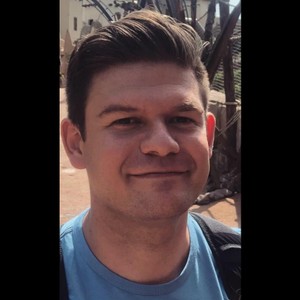Workshop on Text Mining and Generation (TMG) @ ICCBR 2023
- July 17, 2023
- Full-day
- Co-located with ICCBR 2023
- Aberdeen, Scotland
Digital text data is produced across different sources such as social media. Simultaneously, very often only structured data is available. Within CBR, cases of the former are usually handled by using methods of Textual CBR, while Process-Oriented CBR addresses on the latter type of data. By leveraging their generic research origins, i.e., text mining and text generation approaches, we aim to diminish this gap. The target of text mining is to extract (useful) structured information from unstructured text. In contrast, text generation attempts to (automatically) create text from structured information or distributed knowledge. The goal of the TMG workshop is to bring these two perspectives together by eliciting research paper submissions that aim for applying text mining and generation approach in the context of CBR. We welcome any submission from any domain aiming to contribute to to close this gap.
Workshop Schedule and Accepted Papers
The TMG workshop will be held together with the BEAR workshop. Each accepted paper will have 15–20 minutes for presentation and 10 minutes for discussion. The proceedings are available at CEUR.
| Start | End | Event |
|---|---|---|
| 11:30 | 11:40 | Opening |
| 11:40 | 13:00 | Keynote by Prof. Dr. Chris Reed with discussion |
| 13:00 | 14:00 | Lunch break |
| 14:00 | 15:30 | Session 1: BEAR papers
|
| 15:30 | 16:00 | Coffee break |
| 16:00 | 17:30 | Session 2: TMG papers
|
| 17:30 | 18:00 | Invited talk Zonglin Yang, Xinya Du, Erik Cambria, Claire Cardie End-to-end Case-Based Reasoning for Commonsense Knowledge Base Completion |
Keynote by Prof. Dr. Chris Reed

Chris Reed is Professor of Computer Science and Philosophy at the University of Dundee in Scotland, where he heads the Centre for Argument Technology. Chris has been working at the overlap between argumentation theory and artificial intelligence for two decades and specialises in the theory, practice and commercialisation of argument technology. He has won over £6.5m of funding from government, charity and commercial sources, has over 200 peer-reviewed papers in the area including five books, and has served as a director of several technology companies.
Important Dates
| Date | Description |
|---|---|
| Paper submission | |
| Paper notification | |
| Camera-ready copy | |
| July 17, 2023 | Workshop date |
Call for Papers
We welcome any submissions that deal with transforming the representation of data between structured and unstructured formats in the context of CBR-based systems: (applied) research papers, theoretical papers, user studies or prospective papers. Topics include, but are not limited to, the following:
- Text mining for argumentation.
- Case-based knowledge representation of text.
- Similarity-based retrieval and ranking.
- Informed similarity measures for structured text.
- Generating descriptions for graph-based argument case representations.
- Generating case-based explanations for retrieval.
- Methods for Explainable CBR.
- Ethical aspects of AI for text generation (e.g., mitigating bias or misinformation).
- Integration of background knowledge and machine learning.
- CBR and knowledge graphs.
- Graph-to-text generation with knowledge graphs.
- Knowledge graph refinement, particularly featuring text-based signals.
- Snippet generation for search results.
- CBR for Deep Learning with Text.
Submission Information
The submission of the papers should be in accordance to the CEUR-WS style and have to be submitted via EasyChair. Please select the track W4 - Text Mining and Generation. Authors can submit the following types of papers:
- Full Paper (10–16 pages, including references)
- Short Paper (5–9 pages, including references)
At least one author of each accepted paper must register for the workshop and present the contribution.
Organizing Committee
Program Committee
- Alexander Bondarenko (Jena University)
- Wei-Fan Chen (Paderborn University)
- Philipp Heinisch (Bielefeld University)
- Prof. Dr. Achim Rettinger (Trier University)
- Prof. Dr. Lutz Schröder (Friedrich-Alexander-Universität Erlangen-Nürnberg)
- Prof. Dr. Adrian Ulges (RheinMain University of Applied Sciences)



